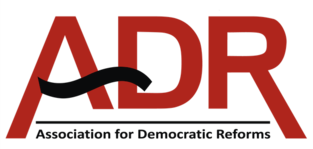According to a survey by Association for Democratic Reforms (ADR), in the Assembly elections held in Kerala in May 2016, of the 1,125 candidates, 202 were crorepatis. In another survey conducted in 60 Assembly segments of different areas of Uttar Pradesh by ADR and UP Election Watch in December 2016, it was found that among such candidates, 21 percent were contractors while 18 percent were builders, around 17 percent were running private educational institutes, 15 percent owned chit fund companies and 13 percent were in the business of mining.
Such instances are numerous but tell the same story: The role of money power in Indian elections.
With the demonetisation of Rs 500 and Rs 1,000 notes announced by the Prime Minister Narendra Modi on 8 November, a perception was built that demonetisation would pose a curb on black money in upcoming Assembly elections and its impact will be visible in the five states that will go to the polls from February.
Acknowledging the role of 'money power' in the elections and seeking ways to curb it, the Election Commission (EC) has sought several amendments to the Representation of the People Act (RP Act).
Responding to a public interest litigation (PIL) on electoral reforms filed in the Supreme Court, the EC has asked for certain amendments in RP Act, to make it more stringent.
In the counter affidavit filed by the Commission, it was stated that the cause espoused by the petitioner which was to ensure "healthier democracy, free and fair elections and furtherance of level playing field for participatory democracy" was supported by the Commission.
The response states, "The increasing role of money power in elections is too well known and is one of the maladies which sometimes reduces the process of election into a mere farce by placing some privileged candidates with financial resources in a distinctly advantageous position as compared to other candidates. The result of such an election cannot reflect the true choice of the people. The system also sometimes deprives qualified and able persons the prerogative to represent masses".
While talking about the visible impact of money power in elections the commission, in its affidavit, the EC stated that it "regularly engages with other agencies for checking the use of money power during elections” and “has recommended several amendments in the Representative of People Act 1951 in furtherance of the objective and to check and remove maladies caused by criminal antecedents of candidates and misuse of money".
Asking for some important changes in the RP Act, the Commission stated, "The existing format of the poll affidavit does not give any information in respect of the sources of income of the candidate and his family members to enable the electors to form an informed choice as to whether the increase of the income of the candidate from the previous election is reasonable or not."
It adds, "The present framework only allows the electors to have PAN details of the candidates, his/ her spouse and dependents. According to law, no one except the assessing officer and his superior officer is allowed to see a person’s tax return. Under Section 280 of the Income Tax Act, 1961 there is a prosecution provision against Officer of the department if he leaks a person’s tax return details unauthorised to anyone. Usually under the Right to Information Act (RTI Act) or even under Section 138 of the Income Tax Act , 1961 the Central Information Commission and the Income Tax Department, do not provide the information as to anyone due to lack of public interest in the requisition".
While highlighting the issue, the Commission said that "these issues do not allow the general public to have any information in respect to source of income of the candidate and as such for the purpose of effective implementation of the judgments of the apex court in true letter and spirit" and for this commission sought necessary changes in Form 26.
EC in its affidavit also highlighted the fact that 170th Law Commission report was first to suggest a new section 4A to be added to the RP Act 1951 “mandating that a person shall be ineligible to contest elections unless if he files an affidavit disclosing his assets, possessed by him his spouse and dependent relatives”.
The commission while making this recommendation stated that this it is the point which has been supported by Law Commission in its 244th report on ‘Electoral Disqualification’ in the year 2014.
Calling for serious punishment for filing false affidavits, the EC stated, "It would be desirable to include the act of filing false affidavits as offence in the list of corrupt practice under Section 123 of the RP Act in order to provide effective deterrent against filing a false affidavit".
The Commission also sought some amendments in other sections of RP Act. One of the important among them is section 9A of the RP Act which deals with "disqualification for government contracts".
Section 9A reads, "A person shall be disqualified if, and for so long as, there subsists a contract entered into by him in the course of his trade or business with the appropriate Government for the supply of goods to, or for the execution of any works undertaken by, that government".
In this regard, it was stated by the EC that amendments on the lines of the Central Civil Services Rules were required so as to take into the ambit of disqualification all contracts entered by candidates as well as immediate family members. Demonetisation is seen as posing serious challenge to the use of black money in elections. And now with this array of proposed reforms, coupled with the recent Supreme Court judgement barring parties to seek votes in the name of religion, caste and language, the EC is hoping to conduct a for a 'free and fair' election in a more truer sense.






